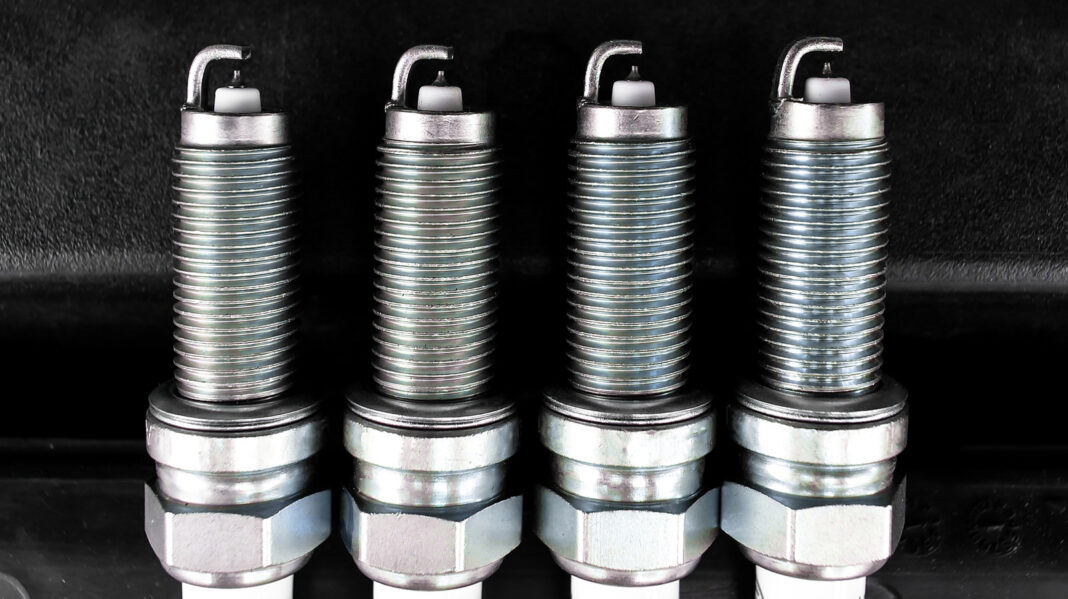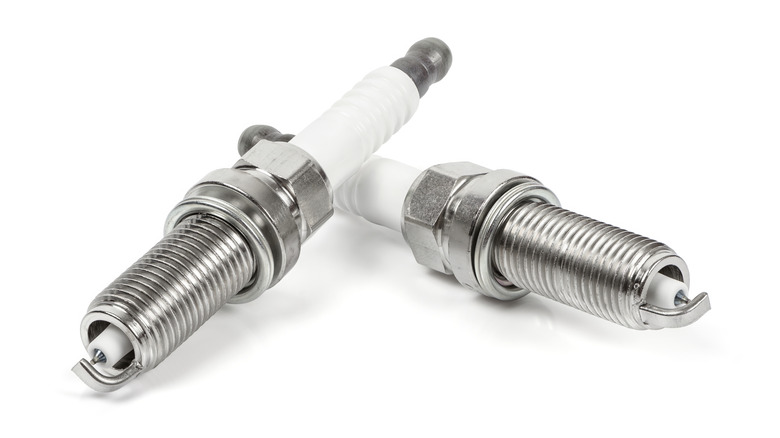For something that’s smaller than your pinky finger, spark plugs have a ridiculously important job: they create a spark that ignites the fuel-air mixture inside your engine’s combustion chamber. But here’s where the geeky stuff comes in –- the metal at the tip determines just how strong and consistent the spark is, and how long it lasts.
Iridium and platinum are both upgrades from the old-school copper plugs. Platinum melts at about 3,215 degrees Fahrenheit — tough, but not as tough as iridium. Iridium has an insanely high melting point of around 4,400 degrees, making it one of the toughest materials you can stuff into an engine. That strength means iridium plugs can be made with ultra-fine electrodes, which create a cleaner, more precise spark and burn fuel more efficiently.
Platinum plugs sit in the middle. They’re more durable than regular plugs (copper-core with a nickel electrode), and less expensive than iridium plugs – platinum spark plugs cost about $4 to $8, while iridium can cost between $8 and $15. Platinum plugs provide reliable performance for everyday driving. They might not fire with the same pinpoint accuracy as iridium plugs, but they’ll get you to work and back.
In short, iridium plugs are like laser scalpels — refined and built for precision. They are the ideal performance spark plugs. Platinum plugs, on the other hand, are the dependable multitools of the spark plug world.
Iridium vs. platinum: Choose the right spark plugs for your car
So, do you really need fancy iridium plugs, or are platinum plugs enough? That depends on your car, and how you drive it.
If you’re piloting something with a modern coil-on-plug ignition system or a high-performance engine that likes to rev high, iridium is the best choice. Iridium plugs can last over 50,000 miles without any issues thanks to their resistance to wear and erosion. They deliver consistent spark energy, and that makes them ideal for performance-focused or turbocharged engines, as pricey as they may be.
Platinum plugs are no slouch either. They’re budget-friendly, can last up to 100,000 miles, and still give you dependable ignition -– especially in commuter cars. Platinum’s lower conductivity doesn’t matter much for regular driving, where throttle response and combustion efficiency aren’t maxed out anyway.
Remember, though, that you shouldn’t downgrade. If your car came with iridium spark plugs, you should not replace them with platinum or standard spark plugs — that would degrade your engine’s performance. Upgrading from platinum to iridium, though, is not a problem at all. Still, installing iridium plugs in an engine meant for platinum plugs won’t magically give you horsepower — longevity and reduced fouling are the benefits you can expect. Choose the type of spark plug best suited to your car. In other words: match the metal to the motor, not the marketing.


